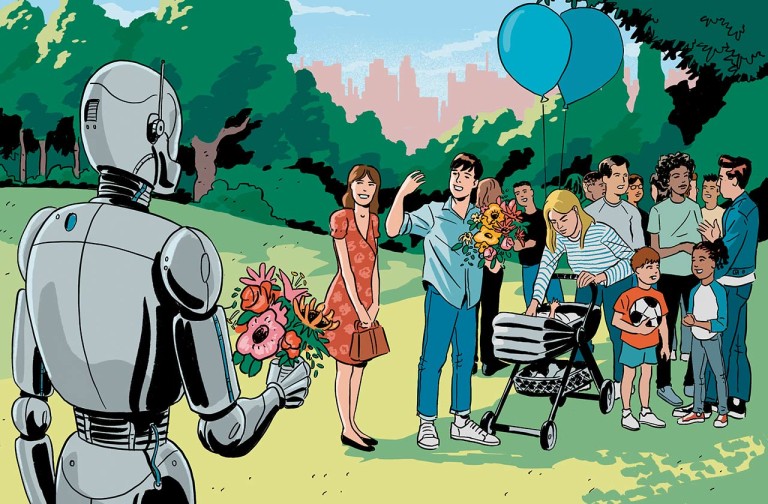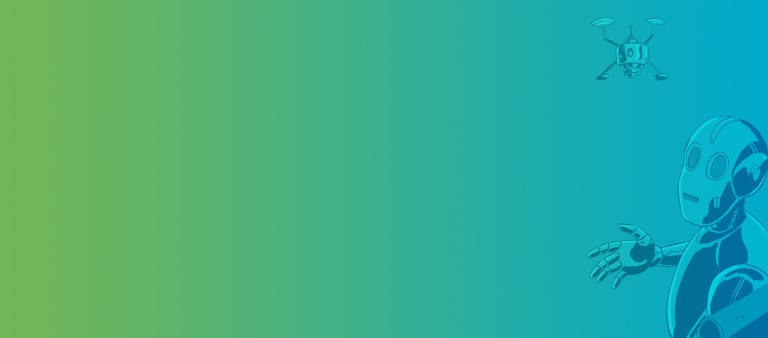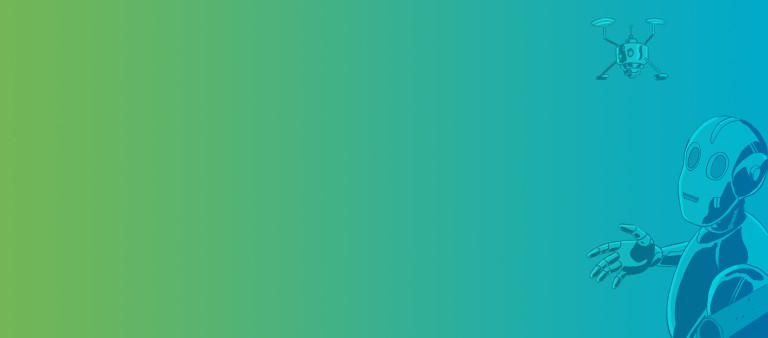On being human
![{[downloads[language].preview]}](https://www.rolandberger.com/publications/publication_image/ta26_human_equation_cover_en_download_preview.jpg)
In this issue of Think:Act magazine we examine in detail what it means to be human in our complex and fast changing world now and in the days to come.


by Janet Anderson
illustrations by Jack Richardson
The world is going through profound changes that are being driven by rapid advances in technology, globalization and changing social attitudes and demographics. As robots become more sophisticated and artificial intelligence encroaches ever further into spaces traditionally the preserve of humankind, people are asking themselves: Where will humans fit in? And what skills should humans focus on in order to compete successfully in the job market of the future?
At the same time, people are demanding more of the work world. How do businesses give their employees a sense of purpose and belonging while introducing innovative technologies that replace people? Progress does not come without a price and many already feel overwhelmed by the constant demands of communications technologies.
How do we find the time to do what humans do best – to be creative, compassionate and courageous? How will we prepare for longer lives and longer careers and what will the impact of these changes be on society? At a juncture where many are beginning to ask these questions, we turn to experts from four different fields to help us work towards answers about what it will mean to be human in our changing world.
Companies want to understand today's landscape of change – what will happen to technology, what happens as people age, how changes in family structures impact work, what it is to be human in an age of machines and what people want from work. It's a complex narrative that's changing quickly.
"Good customer service can only be provided by a human."
Well-being is now a big topic. Many jobs aren't designed with humans' needs in mind. Humans can do them, but they get sick and unhappy. So how do we design jobs that humans enjoy and that keep them healthy and vital? For example, we want to see our children, spend time with our friends, and take time off to regain energy. How do we encourage flexible working and make it work? Encouraging men to take paternity leave is a big issue: If you are going to live for 100 years – which is increasingly likely – and you're only going to have two children, wouldn't it make sense to spend some time with them? Tackling that sort of issue is crucial.
How should businesses prepare? The starting point has to be building a conversation within the organization about the future, for example, by engaging with the young people and asking them what's important to them. Senior executives have a view of the future, but young people don't necessarily see their future in the same way. You need to dive into your organization and find out what's happening to help you understand what people are thinking, what they are worried about.
5 is the number of different careers a person who lives to 100 might have.
In the future, most people will be working with some kind of robot or AI. Some of the tasks people do are going to be carried out by machines and some will be augmented by them. Businesses need to make it clear to people what is going to happen so that they have time to prepare. They need to train people to help them make that leap and, most importantly, reconfigure their jobs to work out which parts the machine can do best and which the human should do. It is better to be open and to support people to make the transition, whether that means moving out of the job or retraining.
Professor of management practice at London Business School and co-author of "The 100-Year Life: Living and Working in an Age of Longevity"
There will always be some human skills that no machine can replicate, like intuition, empathy, complex collaboration and creativity. Good customer service can only be provided by a human – no machine in the world can recognize what is happening to someone's face or voice as well as a person can.
Above all, we have to prepare for the fact that people are living longer. If you live to be 100 years old, you move from a three-stage life of full-time education, full-time work and full-time retirement to a multi-stage life where you do many different things. There will be important identity issues to address around this. What does it mean to still be working into your 70s? How do we see career progression if you are just as likely to move laterally as upward, completely retrain, or take a break? How we see work and careers is going to change fundamentally. We have to be ready for this.
We have a sense that the rate of change is accelerating. The truth, however, is that it is no different than we have seen in the past – particularly in the labor market. The more alarming projections say that up to 50% of today's jobs will go away in the next 50 years. But if you go back 50 years, half of the jobs that were available back then are gone. Yet here we are, currently at full employment.
"Artificial intelligence is just a new wave of automation."
I'm not expecting a major job apocalypse, but that's not to say we won't have issues: One will be the need to retrain people. But there are ways of dealing with that. It's a problem we've had over the past several decades. The kinds of changes we will see in the future are very similar as we continue to automate new classes of work and activity. Artificial intelligence is just a new wave of automation.
A lot of the fear that people have is based on hype. The biggest example of this is autonomous driving. I think it is going to take a lot longer than people realize for a fully autonomous car to be sitting in their driveway – I don't expect to see that in my lifetime. That said, we will see significant changes. For example, big trucks that run on highways are very automatable and that will put people out of work. Agriculture will also change. But I think that the workers it will displace can easily be picked up in other parts of the economy.
In the future, it will be skills that involve human interaction – the ability to persuade people, to connect with them, how likeable you are – that will be more valuable. Another shift we are going to see is that a higher premium will be paid for things that involve a great deal of skill or human attention and labor. Handmade items will become much more prized.
Adjunct professor at Stanford University, serial entrepreneur and bestselling author of "Artificial Intelligence: What Everyone Needs to Know"
As automation makes us wealthier, categories of jobs that are regarded as luxuries today will be in greater demand – like getting a massage or a flower arranger coming to your house. Individuals will be able to make a good living in ways that were not possible in the past. We will see a lot of artisanal opportunities, skills that we currently think of as hobbies becoming professions. There will be more need for hospitality. Those skills will be important. We are not facing mass unemployment or social unrest, but the educational system is not as responsive to change in vocational training needs as it should be. We need to find ways to tighten up that feedback loop between education and the skills people will need.
My advice is: take a deep breath. The future will be much like the past in terms of its trajectory. These things sound alarming because people believe that the only jobs that will be available will be the kinds that we have today, and that's not true. It's very clear that new jobs will come about and most of them are in plain sight today – they're just smaller now than they will be in future.
Organizations today are being faced with unprecedented complexity, driven by forces such as competition, globalization and technology. With these conditions comes the need to be agile, or be able to adapt and flourish in changing circumstances. Every organization is calling for greater levels of agility in the face of this complexity. However, we have to recognize that organizations themselves can never be truly agile unless the people who work within them are agile – and more specifically, emotionally agile.
"It's almost like our brains haven't evolved effectively to tolerate and deal with the speed of changes."
We know that the way human beings deal with their inner worlds drives everything, so it is important for business leaders to recognize that human beings are human beings – and that means they have a full range of emotional experience. But when you are emotional about something within the workplace environment, it's almost like people don't have the time to deal with the issue, neither the person going through the issue nor those around them. Depression is one of the biggest issues, yet we are emotionally rigid in our responses as managers. At work, we want our employees to behave a certain way and we base this upon the values of the organization. However, this behavior is not consistent with human beings and human agility. Demanding only positive emotion, that people be upbeat or that everyone be onside with change actually crushes the ability of the organization to be agile and adaptive. People don’t want to try because they don’t want to be disappointed or fail. Yet this is part of the emotional experience. And while organizations very often demand values, there is no true bringing about of values unless employees are able to internalize them for themselves.
Ironically, the very qualities needed in complex contexts are undermined by that same complexity. So, rather than being tolerant of ambiguity – remaining clear-headed, inclusive, collaborative and innovative – complexity drives the opposite. Employees are more likely to become transactional, make rash decisions, shut down and feel stress, panic and guilt. We live in a society in which there is so much change, so much technology and a huge amount of ambiguity – it's almost like our brains haven't evolved effectively to tolerate and deal with the speed of these changes in the way that we need to. We need emotional agility today more than ever. We need the ability to sit with our emotions, to recognize that emotions pass, to be able to label emotions and develop strategies around emotions.
Psychologist on the faculty of Harvard Medical School, co-founder and co-director of the Institute of Coaching and author of "Emotional Agility"
When organizations "show up" and create spaces that are psychologically safe without scapegoats, that's when you know you are building a stronger culture. That's because there is no innovation without the discomfort for potential failure. People want to be inclusive, relational and collaborative. When they can bring their entire selves to work and be courageous, compassionate, curious – all things that machines cannot be – this is when authentic agility and happiness truly happens. When leaders help people to surface their own values, this is where the depth lies. When you think of your organization, think of the essential humanity of the people you work with.
Humans have always been part of groups. From our hunter-gatherer beginnings, being part of a group was an important part of what it meant to be human. In fact, it is only in groups that we humans are smarter than the rest of the animal kingdom: Individual humans alone are somewhere in the middle of the food chain.
"... All I'm saying is that we are also parts of powerful human groups larger than ourselves."
One word for these groups of humans is "superminds." Superminds composed of humans have existed for thousands of years, but we don't usually think of ourselves as parts of superminds. And now we are being joined in our superminds by computers that can do some of the things that only humans could do in the past. These human-computer superminds come in many different shapes and sizes, including corporations, global markets, scientific communities and local neighborhoods. Technology makes it possible to have much bigger and more deeply integrated groups; to connect people to other people and to computers at a scale and in rich new ways that were never possible before. This is what I call "hyperconnectivity," and it's still hard for us to imagine the full implications of this hyperconnectivity.
Specialized vs. general intelligence: IBM Watson beat humans in Jeopardy but couldn't play tic-tac-toe.
As technology makes superminds smarter, they can help solve a range of societal and business problems, including corporate strategic planning, product design, creating more responsible democracies, dealing with climate change and preventing terrorism. How can we ensure the outcome is good? I don't think we always can. Just as some smart people do evil things, some superminds do bad things, as well. We can't guarantee this won't happen, but we can increase the chances that superminds will do things we think are good by following three principles.
Information technology professor, founding director of the MIT Center for Collective Intelligence and author of "Superminds: The Surprising Power of People and Computers Thinking Together"
First, we should design superminds sensibly. For instance, we should avoid situations where computers make superminds more stupid, like when fake news makes democracies less smart. Second, we should learn to choose more wisely which superminds to use for which tasks. For example, markets are good at allocating resources efficiently to achieve goals that have market prices but communities are the main repositories of what we consider ethical. Recognizing this can help us choose between markets and communities for achieving our goals. Third, we need to exercise individual wisdom in choosing which superminds to support. In the ecosystem of superminds, the ones with the most members are often the ones that become most powerful. By participating in the superminds most closely aligned with our values, we can, collectively, have a huge effect on which superminds win in the long run.
Who should be held accountable for outcomes created by a supermind? This is like asking who is responsible for the results of an election. No single individual is responsible; whole groups are. What we need is a new perspective, a more innovative and systematic way of thinking about how to solve problems. And I think seeing the world in terms of superminds gives us such a perspective. Superminds run our world, and if we want to increase our chances of getting the outcomes we want, we need to learn how to use them effectively.

![{[downloads[language].preview]}](https://www.rolandberger.com/publications/publication_image/ta26_human_equation_cover_en_download_preview.jpg)
In this issue of Think:Act magazine we examine in detail what it means to be human in our complex and fast changing world now and in the days to come.
Curious about the contents of our newest Think:Act magazine? Receive your very own copy by signing up now! Subscribe here to receive our Think:Act magazine and the latest news from Roland Berger.

![{[downloads[language].preview]}](https://www.rolandberger.com/publications/publication_image/ta26_human_equation_cover_en_download_preview.jpg)
In this issue of Think:Act magazine we examine in detail what it means to be human in our complex and fast changing world now and in the days to come.
Curious about the contents of our newest Think:Act magazine? Receive your very own copy by signing up now! Subscribe here to receive our Think:Act magazine and the latest news from Roland Berger.

